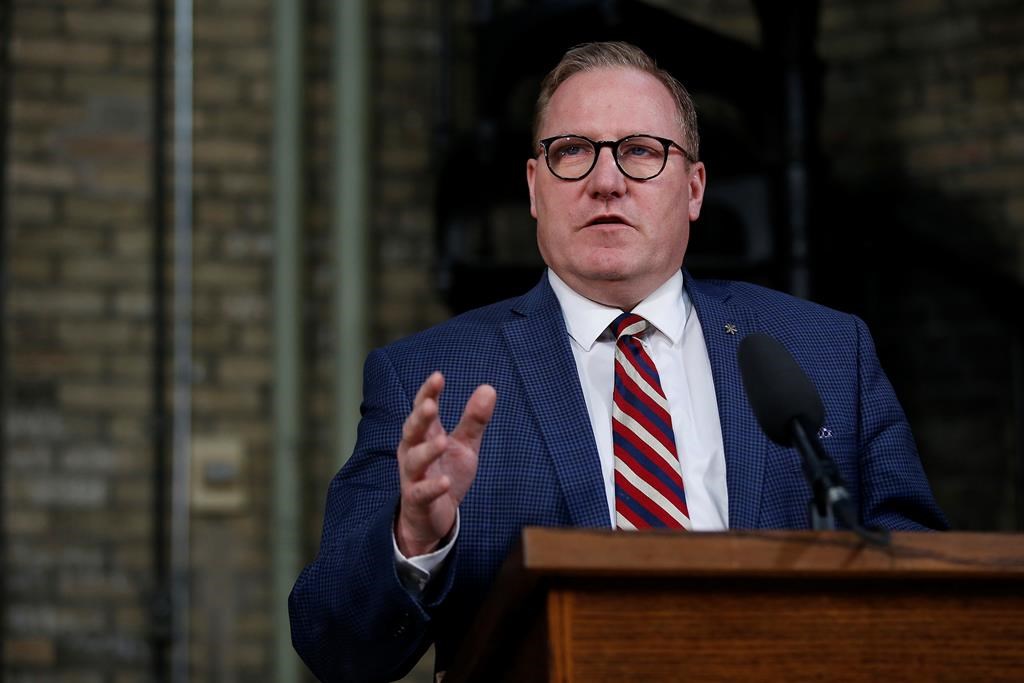The Manitoba government is asking a judge to shelve a court challenge launched by unions representing 110,000 workers over the province’s public-sector wage freeze.

Two years after the Progressive Conservative government started imposing wage freezes on collective agreements as they expire, the government introduced a bill Monday to amend the process by which the freezes – and any possible exceptions – are determined.
The changes should be enough to put the court case on hiatus, the government’s lawyer wrote in a letter to Court of Queen’s Bench Justice James Edmond.
“In light of this material change in circumstances, the government will be seeking an adjournment of the trial, currently scheduled to commence on Nov. 18,” government lawyer Heather Leonoff wrote.
The Manitoba Federation of Labour said the changes do not go far enough and continue to give the government the right to impose its will.
RELATED: Workers asking court to stop province’s wage freeze

Get daily National news
“This is a bunch of tinkering around the edges of a bad law,” federation president Kevin Rebeck said.
“All along, we’ve been calling (on the government) for this law to be repealed and instead … to come to the table and bargain in good faith.”
The Tories passed a bill in 2017 that mandated a two-year wage freeze for public-sector workers as each new collective agreement was negotiated. That would be followed by a .75 per cent pay increase in the third year and one per cent in the fourth.
- Canadian woman charged with illegally crossing into U.S., kicking border agent’s face
- A new ‘cold’ war? Canada looks to bolster Arctic security, sovereignty
- Canadian furniture industry still ‘reeling’ after Trump pauses tariff spike
- Ottawa propose fines of up to $1M for violating foreign influence registry rules
The bill has never been proclaimed into law, but public-sector unions said government negotiators were treating it as if it had been and were refusing to budge on wages.
More than a dozen unions representing 110,000 government workers, nurses, teachers and others across the public sector filed the court challenge in 2017. They argue the bill violates their charter right to collective bargaining.
RELATED: Manitoba government cuts more civil-service jobs than planned
Finance Minister Scott Fielding said Monday his proposed changes provide more flexibility for improvements aside from salary increases.
Fielding said the changes also allow for some people to be exempted from the wage freeze, such as workers in remote communities or workers with skills that are in high demand.
“This is part of listening. Our government’s very proud to do the listening,” Fielding said, adding he feels the changes answer the needs of both government and union negotiators.
“A lot of times what happens is, politicians get accused of not listening. We’ve have listened in this case.”
WATCH: Province to introduce bill that would freeze public-sector wages









Comments